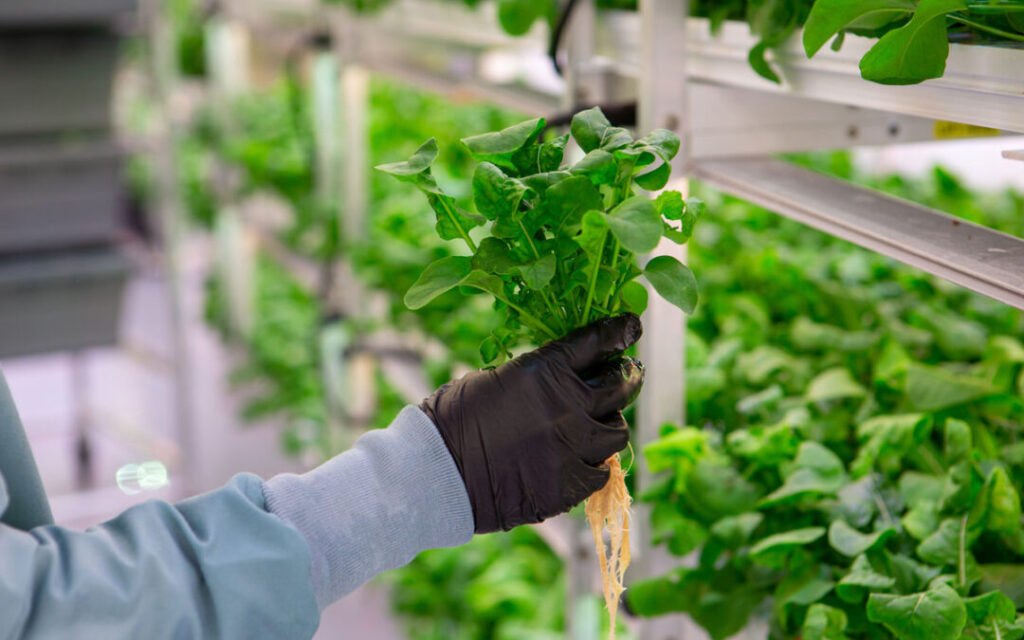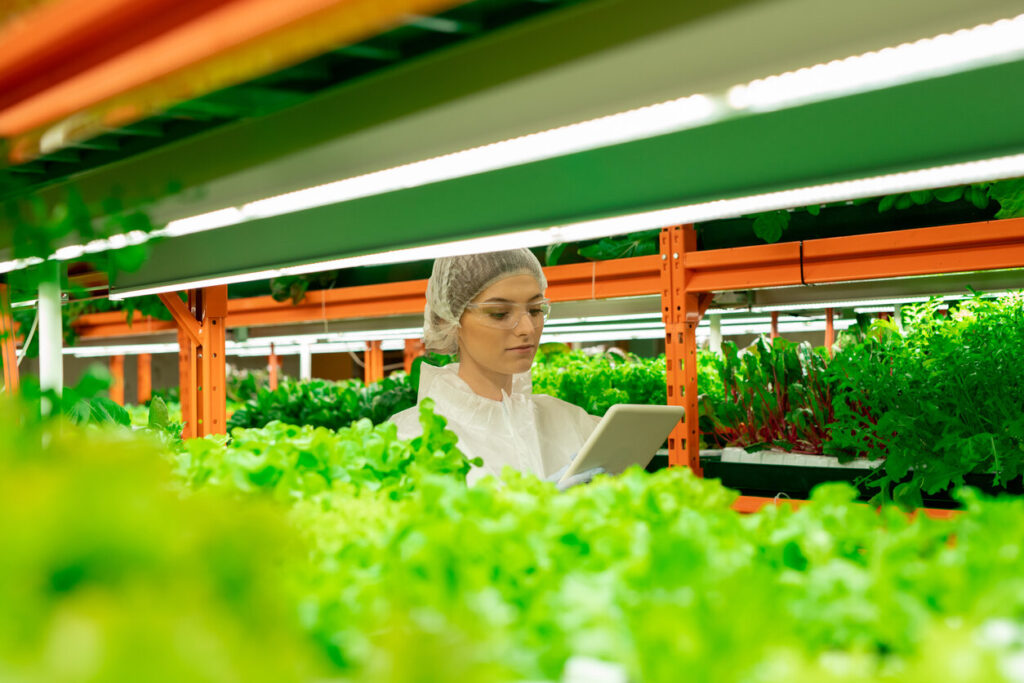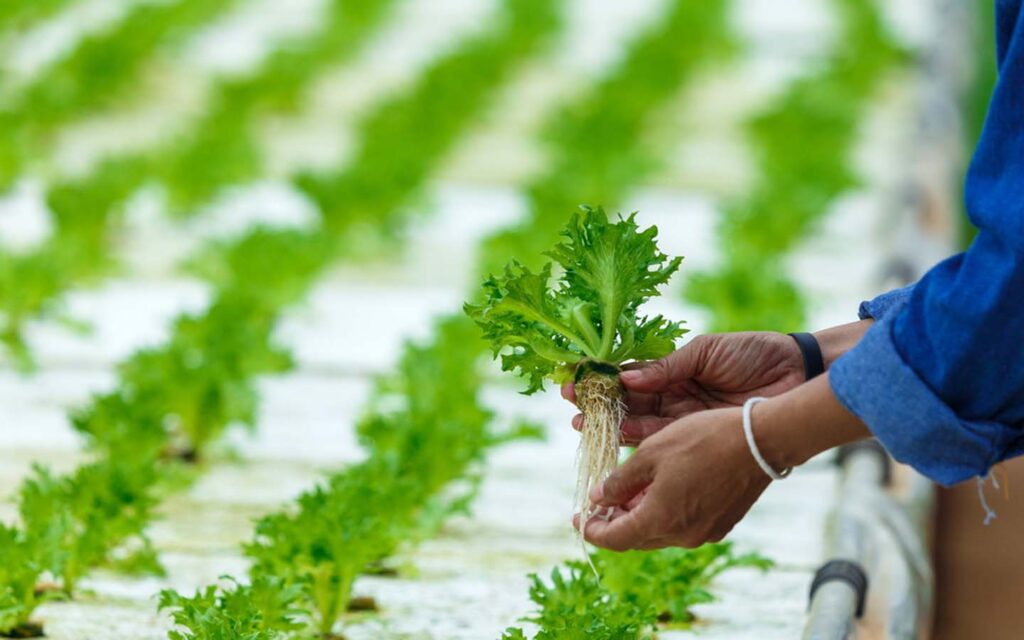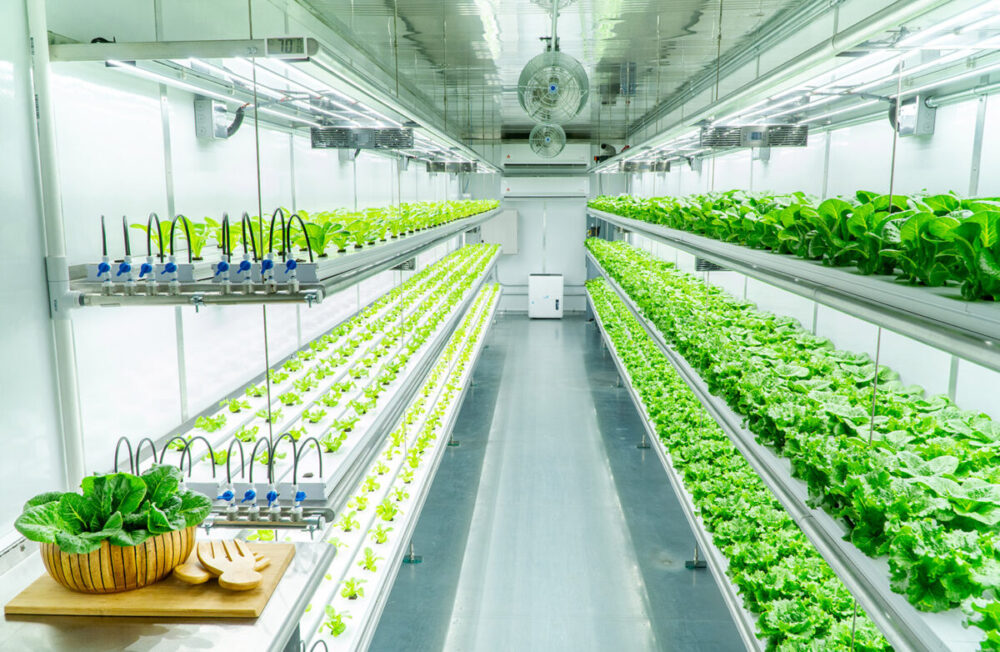The traditional form of farming has remained the same for centuries. Yes, several technological advancements have enhanced productivity, the process of sowing the seeds, watering and taking care of the produce, harvesting, and over-dependence on weather continue to be the mainstay of soil-based farming. But farmers must look for newer ways to meet the growing global demand and resort to more efficient techniques to yield better, faster, and more affordable results.
This is where hydroponic growing is taking the world by storm. It is a soilless way of growing plants where the roots are immersed in a carefully mixed nutrient solution and the plants are grown in a stipulated environment. With hydroponic gardening, you can grow healthy, bountiful, and organic crops all year round. Since hydroponic systems are carefully created, they can be set up in small spaces without much investment.
While both techniques are proven ways of farming, some key differences make hydroponics a much more efficient way of growing your greens. You can choose the easiest to cultivate plants for those high in demand in the market. Whatever you choose, all you need is a simple hydroponic set and the correct hydroponic supplier like Kushy.com.au to get going with producing a bountiful harvest that you can reap throughout the year.
Here are some key differences between hydroponics vs soil farming:
1. More bountiful produce

Source: verticalroots.com
One of the key benefits of hydroponics is that it produces nutrient-rich crops in a much greater quantity. This can be attributed to the fact that you can grow multiple crops in a year with hydroponics, which is not possible with soil-based farming. Hydroponics recreates an ideal environment for the crops to grow and thus it doesn’t depend on the natural environment and is free from weather effects. Unlike traditional farming, where you have to wait for the right season/weather to grow the crops, the stipulated environment in hydroponics helps farmers grow all kinds of crops any time of the year.
Furthermore, the nutrients reach the roots directly producing a much healthier crop free from pest attacks. Healthier crops grow well, are tastier, and remain fresh for longer.
2. Space efficient
Yet another key benefit of hydroponics is that it requires very little space to grow a large quantity of produce. This is especially true for vertical hydroponic gardening that utilizes space extremely efficiently. Even greenhouse setups utilizing hydroponic techniques enjoy great space management through hydroponics. The roots don’t have to expand a lot to find nutrients, they grow well within a small amount of space. Besides, a more significant number of saplings can be grown in a small area yielding more produce.
3. Saves water

Source: thedharmatrails.com
Plants in hydroponic systems grow in nutrient-rich solution and this water is continuously circulated from the reservoir to the roots and back into the reservoir. This highly water-conserving system allows plants to absorb how much they need and release the rest of the water back into the system. On the other hand, soil-based farming utilizes a lot of water that isn’t absorbed by the plants but gets evaporated into the atmosphere. There is a large amount of water that goes to waste. In a recent study by WHO, it has been suggested that the availability of drinking water is depleting at a fast pace and half of the world will be living in water-stressed areas by 2025. In a global scenario like this and the increasing demand for food, traditional forms of irrigation where a huge amount of water is wasted will become obsolete. Hydroponic systems can be the saviours in the times to come.
4. Organic, chemical-free crops
Traditional farming utilizes a lot of pesticides and chemicals to maximize the produce, which is not the case with growing hydroponically. Since plants are grown in a controlled environment, no pest attacks or other insects grow on the plants. Moreover, the nutrients are directly provided to the roots growing a much healthier crop than soil-based farming. Better health ensures less susceptibility to weed and pest attacks. While hydroponic systems are prone to infrequent pest issues, they are far and wide and can be controlled easily.
5. Nutrient control

Source: arcticfarming.fi
Every plant requires a particular set of nutrients to grow to its best capacity, and hydroponic farming allows you to do that. Nutrient solutions can be carefully mixed and curated depending on the requirement of the crops you are growing. This will ensure that each crop grows well without you having to add chemicals to enhance its growth.
6. Growing indoor – weather independent
One of the unique features of hydroponic farming is that plants can be grown indoors, so you don’t need wide open spaces to set up a hydroponic system. This can even be done in your backyard, your balcony, or even inside your room. Since there is no soil involved, it is much neater and easy to maintain the system. This also gives you the flexibility to grow your greens all year round as the temperature, light, oxygen level, humidity, and airflow can be controlled with various hydroponic supplies and provide the plants with the right kind of environment.
On the contrary, you have to depend on the weather and can only grow seasonal crops with field farming. Besides, you don’t have any control over the climate and any untimely climatic change can potentially destroy your crops.
7. Demands less physical work

Source: freshontable.com
Traditional farming requires a lot of physical toils, and even though today’s technological advances allow farmers to do most of the work with machines, you still have to get down and dirty in the soil. But hydroponic systems provide you with the freedom from physical toil. They can be set up at a comfortable height so that you don’t have to bend for hours to take care of your plants. The hydroponic systems can be designed keeping your comfort in mind and their ergonomic designs make planting, transplanting, and harvesting a lot easy.
Hydroponic farming has revolutionized the way you grow your greens. Not only is hydroponics more productive, but it is also less physically challenging. Hydroponics have far fewer limitations, and unlike its traditional counterpart, hydroponics provides a lot of freedom with the kind of crop you wish to grow.

















